Strawberry variety Moscow delicacy (F1)
Moscow delicacy is a remontant variety of garden strawberries (strawberries) for universal use. It was taken out by the specialists of ZAO Scientific and Production Corporation NK. LTD ”in cooperation with the Dutch company ABZ Aardbeien Uit Zaad BV. In 1999, the variety was included in the State Register of Breeding Achievements of the Russian Federation. Approved for cultivation in all regions of Russia. It is appreciated for its large fruit size, good yield, decent taste. Strawberries are recommended for gardening. The Moscow delicacy is a hybrid, therefore, the seed bag must be marked with F1.
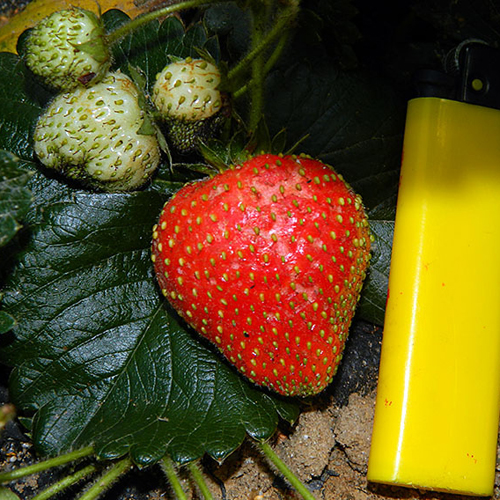
The plant is medium-sized, semi-spreading, compact, medium-leafy. The mustache is medium, green in color, formed in small quantities. The leaves of the variety are medium-sized, slightly wrinkled, concave, medium-silvery, with slight pubescence, green in color. The middle lobe of the leaf is rounded. The flowers are bisexual, medium-sized, white. The inflorescence is multi-flowered, semi-spreading. The peduncles are long, thin.
The berries of the Moscow delicacy are medium-sized, blunt-conical in shape without a neck. The skin is red, shiny. Achenes are numerous, deeply embedded in the pulp. The pulp is red, moderately firm, juicy, very aromatic. The berries have a sweet and sour dessert harmonious taste, are versatile in use, and are equally good both fresh and processed. They are not particularly suitable for freezing. The fruits do not tolerate transportation and storage very well, so this variety is not suitable for commercial use.
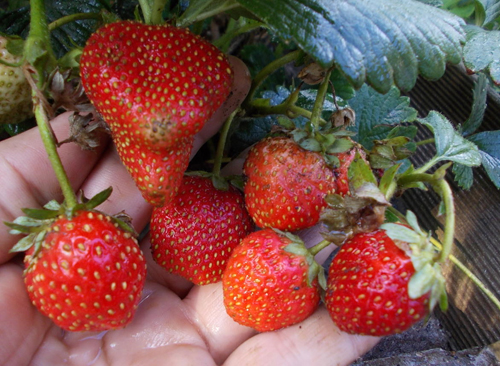
The average weight of berries is highly dependent on the intensity of agricultural technology; with very painstaking care, specimens weighing about 50 grams can ripen. In general, this strawberry is famous for its large-fruited, but not everyone manages to get weighty berries. The yield of the Moscow delicacy is average - 800-1200 grams of berries per bush. This indicator is also highly dependent on the intensity of agricultural technology. Fruiting begins around early to mid-June and ends in late autumn, it is quite stable, however, the berries can still become shallow by the end of the season due to illiterate care.
According to the State Register of Plants of the Russian Federation, strawberries are frost and drought resistant. But, according to gardeners, she still desperately needs good shelter both in winter and in spring, especially in cool regions. With drought resistance, too, not everything is clear - dry periods have a very negative effect on the yield of the variety, as well as waterlogging, by the way. The State Register indicates that the flowers are moderately resistant to spring return frosts, but gardeners still recommend covering plantings in spring, even in the conditions of Central Russia. The Moscow delicacy has an average immunity, it is affected by diseases no more often than other varieties, but it requires timely high-quality prevention.
In agricultural technology, our hero is quite standard, he only needs basic, but competent care. The main thing to pay attention to is watering. Strawberries do not like both waterlogging and drought, reacts very negatively to these extremes, reducing productivity, and taste can also deteriorate. Thus, the best solution would be to install a drip irrigation system. The second point that greatly affects the quality and quantity of the crop is regular feeding. The cultivar is remontant, therefore it needs good nutritional support in order to produce stable fruit at a high level.
Moscow delicacy is a rather interesting remontant hybrid.There is very little information about it, many gardeners abandoned it, becoming interested in promising new products, but it still remains very popular. This strawberry is quite whimsical to care for, and not in every region it feels comfortable, but it can be successfully cultivated in greenhouses and under shelters. You are unlikely to find seedlings on sale, since this hybrid is grown from seeds, so be very careful when buying seed material, purchase only from trusted manufacturers. By the way, plants perfectly transfer their qualities to "descendants" in any way of reproduction, so expanding the plantation of strawberries grown from seeds will not be a problem.
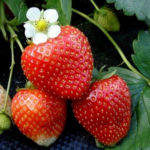
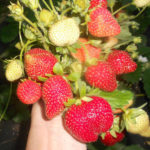
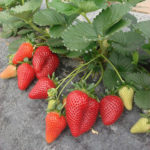
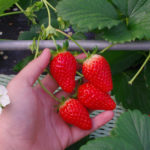
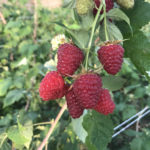
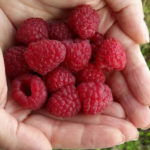



I do not feel any enthusiasm about this variety - the yield is really good, the berries are large enough, bright, juicy, but they are so sour that it drives my teeth! I have been growing strawberries for a long time, so I know that the composition and acidity of the soil greatly affects the taste of the fruits, so I did not throw out the Moscow delicacy right away, but distributed it to all my friends for testing - it did not help: the berries grown on different soil turned out to be sour anyway. I do not agree that the variety needs to be grown from seeds - it can be propagated with rosettes (dig up a bush and divide it).